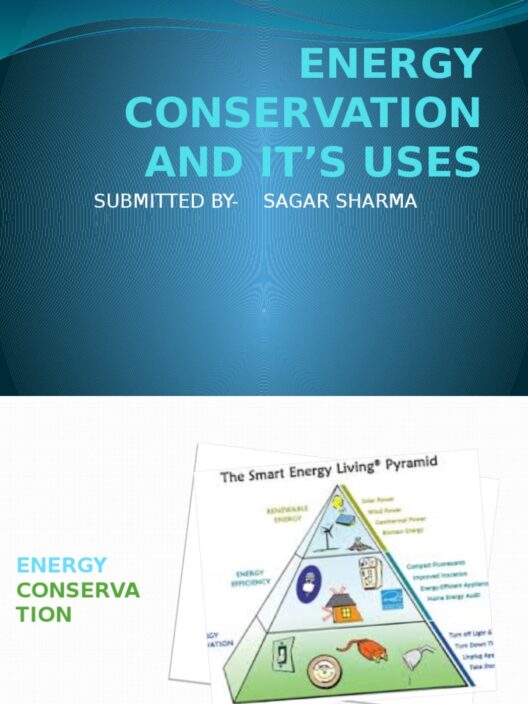The phenomenon of global warming is a pressing concern that directly correlates with our everyday energy usage. As individuals, we often overlook the profound implications of our energy consumption on the environment. The crux of the matter lies in the carbon footprint generated from various energy sources, most notably fossil fuels. Each flick of a switch, turn of a knob, and charge of a device invariably contributes to the relentless accumulation of greenhouse gases in our atmosphere, which in turn exacerbates climate change.
At the heart of this argument is the frequent use of fossil fuels such as coal, oil, and natural gas. These energy sources are not only the most commonly utilized worldwide but also the most detrimental to our ecological balance. When burned, they release a significant amount of carbon dioxide (CO2) and other greenhouse gases. Scientific consensus strongly links the increased concentration of these gases in the atmosphere to rising global temperatures. This fossil dependence fuels a cycle of environmental degradation that extends far beyond mere temperature rises.
In our homes, the typical energy solicitations range from heating and cooling systems to electrical appliances. A simple act, such as turning on an air conditioner during a sweltering day, leads to increased energy demand. If the source of that energy is predominantly fossil fuels, the consequences are dire. Not only do these actions lead to higher personal energy bills, but they also collectively escalate the demand for fossil fuel extraction and combustion, propelling us further into the abyss of climate crisis. The irony is palpable; to achieve comfort in our daily lives, we compromise the stability of our planet’s climate.
Moreover, transportation is another key contributor to the crisis we face. Vehicles powered by gasoline and diesel emit significant amounts of CO2. A staggering portion of our daily commutes utilizes these fossil fuel-driven vehicles, reinforcing our reliance on carbon-intensive energy. The intricacies of urban planning and public transit systems also play a vital role in this context. When communities prioritize infrastructure that binds them to fossil fuel consumption, they inadvertently perpetuate the vicious cycle of climate change.
The deeper reasoning behind this troubling tendency lies in the intricate relationship we share with energy. Our modern lives have become inextricably linked to the conveniences that energy provides. Technology development has led many to conveniently forget the ecological ramifications of their daily habits. The allure of instant gratification can overshadow the looming threat of ecological collapse. It is this enchantment—a fascination with convenience—that serves as a catalyst for unbridled energy consumption.
In recognizing our energy habits, it is also imperative to deliberate on the alternatives. Renewable energy sources—such as solar, wind, and hydroelectric power—offer a sustainable pathway. Transitioning to these energy forms mitigates greenhouse gas emissions and lessens our reliance on harmful fossil fuels. The marvel of solar panels transforming sunlight into usable energy, or wind turbines harnessing the kinetic forces of nature, presents not just an alternative, but a necessary evolution in our energy paradigm. By actively engaging with these technologies, we can contribute to a more sustainable future.
Furthermore, energy efficiency in our daily lives becomes paramount. This concept encompasses the conscious decision to utilize appliances designed to consume less energy, thus minimizing our carbon footprint. Simple changes, such as switching to LED lighting, upgrading insulation, and utilizing energy-efficient appliances can yield significant energy reductions over time. Interestingly, the practice of mindfulness when using energy complements technological advances. An inherently human quality, mindfulness encourages individuals to reconsider their relationships with energy, fostering a culture of sustainability.
The embrace of sustainable practices extends beyond mere energy usage. Advocacy for policies that support clean energy initiatives is essential. Engaging with local and national governments to endorse legislation that prioritizes renewable energy sources and reduces fossil fuel investments can create systemic change. Grassroots movements across the globe continue to demonstrate the impact of collective action. The transformation of our energy systems is not merely a personal endeavor; it is a collective responsibility that necessitates robust advocacy and participation at all levels of society.
In illuminating the connection between everyday energy use and global warming, a deeper understanding emerges. Our conveniences, habits, and the very frameworks within which we operate are intricately woven into the fabric of our energy choices. As individuals, we hold the power to influence societal norms and demand a transition toward sustainability. The urgency of the climate crisis implores a re-evaluation of our daily practices, beckoning a shift from convenience to conscientiousness.
Ultimately, it is the realization of this nexus that can drive substantial change. By recognizing our role in the energy landscape and its effects on global warming, we uphold a responsibility to ourselves, future generations, and the planet. Each mindful choice, communal advocacy, and transition to renewable resources creates a ripple effect, potentially curtailing the trajectory of climate change. In this era of ecological uncertainty, the onus lies upon us. It is time to harness our fascination with energy and channel it towards fostering a sustainable planet.







